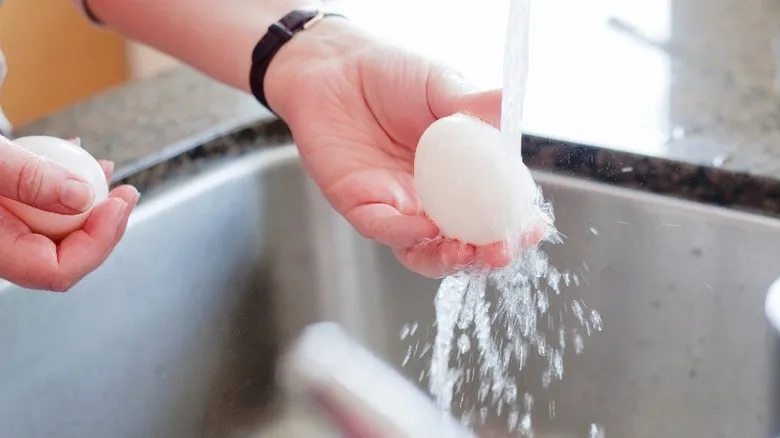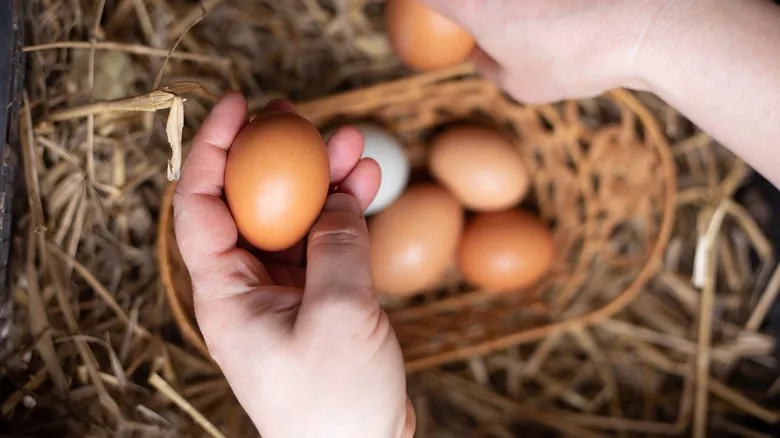How to safely handle farm-fresh eggs

In contrast to supermarket eggs that have been washed and sanitized, fresh eggs retain a natural coating known as the bloom. This is actually beneficial, which is why many British households do not refrigerate their eggs; the outer cuticle acts as a barrier against bacteria. Unwashed farm-fresh eggs can remain good for up to two weeks at room temperature and can be refrigerated for as long as three months, which is longer than their washed counterparts from the store. Once eggs are washed, they typically remain fresh for only about 45 days. Considering that store-bought eggs may have been transported across the country for a couple of weeks before reaching the store, their age can be quite uncertain.
If you are raising chickens for eggs, it’s crucial to collect them promptly after they are laid to prevent them from sitting in the coop or coming into contact with bacteria and feces. Even with the protective bloom, exposure to feces increases the risk of illness for anyone who handles or consumes the eggs. Be sure to discard any eggs that are broken or cracked, as even the smallest fissures can allow harmful bacteria to enter.
After collecting the eggs, keep the protective bloom intact until you are ready to use them. Eggs with an unbroken bloom will have a dull or dusty look. If an egg has feces or the remnants of another broken egg on it, gently wipe it off with a clean, dry towel. If you discover eggs in an unusual location and are unsure of how long they have been there, you can determine their freshness using the float test.
Preparing farm-fresh eggs to eat

When you're prepared, you can wash the eggs in water that is warmer than the eggs themselves. For freshly laid eggs, this means using water around 135 degrees Fahrenheit. For all other eggs, a temperature between 90 and 120 degrees should suffice. This temperature difference causes the egg to expand, which helps prevent bacteria from entering through the pores. Using cold water could have the opposite effect. Clean each egg individually with a small amount of unscented soap, then immerse them in a solution of 1 tablespoon of bleach per gallon of water for sanitization. Afterward, rinse them thoroughly and dry them completely before storing. Remember to clean and disinfect all surfaces used during the egg washing process to prevent cross-contamination.
You can stop at this point, or you may choose to pasteurize the eggs. Pasteurization can eliminate bacteria, making eggs safer to consume when runny or raw, but it is not infallible. Most store-bought eggs are also unpasteurized. While your sous vide can be used for pasteurizing eggs at home, it may not be as precise as commercial methods, so it is still advisable to cook eggs thoroughly (meaning not runny) before eating, or to discard them if they appear questionable.
If you are purchasing eggs from someone else, be sure to inquire about their processes as well. If they seem hesitant to answer straightforward questions about egg collection and hygiene, that may be a red flag.
Recommended

Light Vs Dark Chiles: What Sets Their Flavors Apart?

What Does It Mean When Meat And Poultry Have A 'No Antibiotics' Labels?

Is There Water In Whole Milk?

What Is Hazmat Whiskey, And Why Would You Even Want It?
Next up

